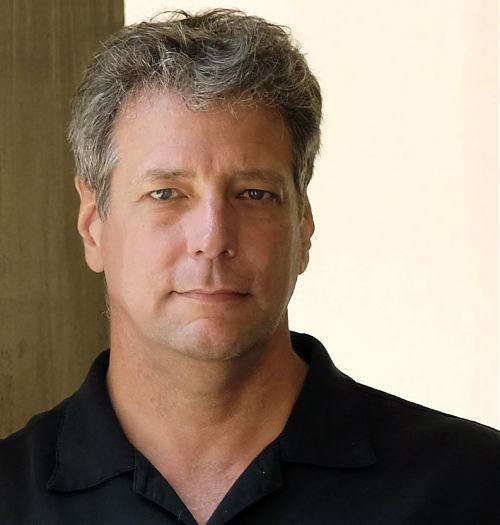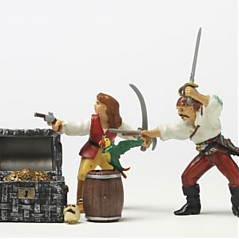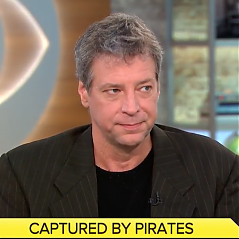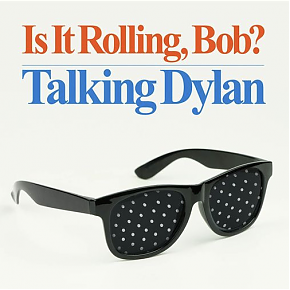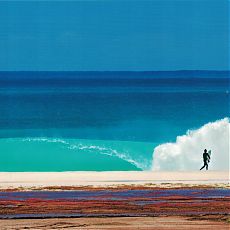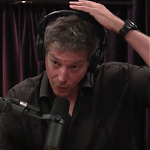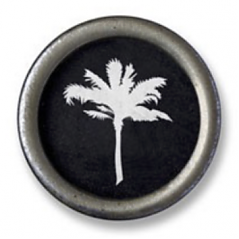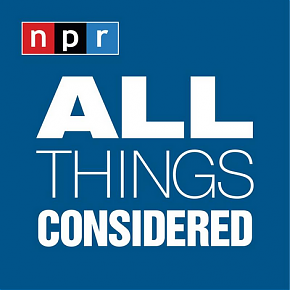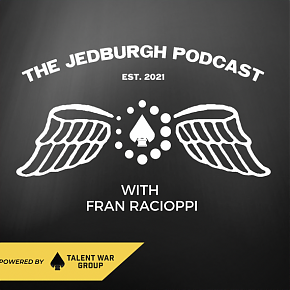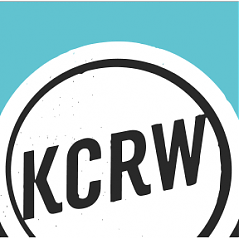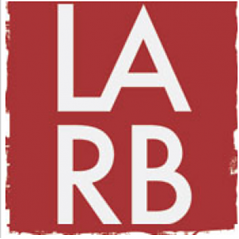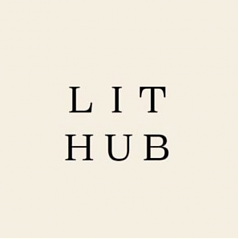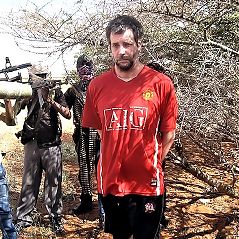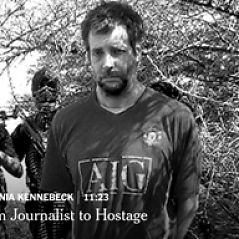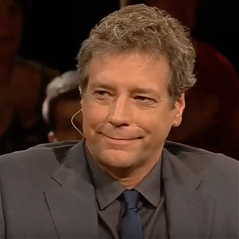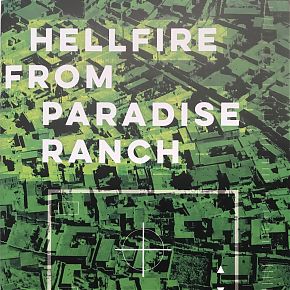The Hawaii of Africa
Surfing São Tomé
The Financial Times
May 2009
The plantation house at São João dos Angolares was a white wooden mansion with fanlight windows, perched on a hill over the town and sagging in the constant rain. A young African woman with long braided hair slept on a sofa in the lobby.
“Desculpe,” I said, but she didn’t stir.
I had no reservations. I was soaking wet. I’d hauled my baggage and surfboard up the hill from a bus stop in the center of town. For obscure reasons I didn’t have a car. I had just spent two nights in the rainforest, surfing on the southern beaches of São Tomé — half of the twin-island African republic of São Tomé and Príncipe, in the Gulf of Guinea. São João Angolares was a town up the coast. It represented comfort, rest, civilization.
I was here to write a book about surfing, not because the waves in São Tomé were so legendary but because the history was so odd. I’d been to a fishing village down the coast, called Porto Alegre. But São Tomé is hard to navigate. The roads are terrible, electricity is scarce, ATMs are nonexistent. The islands present themselves to the world as an undiscovered African Hawaii, with volcanoes and pristine beaches and a handful of luxury hotels. But São Tomé is also one of the poorest nations on earth, with a cacao-and-coffee economy in the process of shifting — perhaps — toward oil, if anyone can find high-grade stuff under the sea. Tourism, for now, is an afterthought.
“Desculpe,” I said again, after looking around for anyone besides the sleeping woman.
The Roça São João dos Angolares was owned by a Santoméan artist and chef who made a point of using local ingredients in his lavish seafood meals. It was a comfortable antique. The old timber floors of the plantation house were damp and pliant, oddly soft, like turf. Everything about the place felt both durable and evanescent. Roça means plantation, and the main house felt as if it had always been there, like a house in a recurring dream. It seemed as if you could arrive without warning, move into a drafty soft-timbered room, sleep under the mosquito net, eat a multi-course meal on the verandah, and leave without meeting a stern hotelier demanding cash. You couldn’t; but the strange stillness of Angolares was part of its charm. People would always be sweeping the yard, or laying laundry out on the grass to dry, uselessly (in this season) because of the constant rain.
Soon the woman stood up — young, offhanded, tall, very pretty — and when I asked for a room she led me upstairs to a wooden verandah, where six empty rooms were lined up behind French doors overlooking a forest of banana trees. “Lunch is at two o’clock,” she said, and went away.
I seemed to be the only guest.
Down the coast, in Porto Alegre, I had tracked down one of São Tomé’s only local surfers. With a translator named Quintino and another surfer called Sean, I had found a kid named Chum (pronounced “Shoom”), who’d learned to ride on his feet after a Californian named Sam George paid a visit to São Tomé in 2000. George used to edit Surfer magazine. He first came to São Tomé intending to “pioneer” its waves. Instead he found an indigenous and possibly very old surf-riding culture.
Kids on São Tomé have ridden hand-carved bodyboards on their bellies and even wooden surf boats for as long as anyone can remember. George returned to make a film about them in 2006 (The Lost Wave: An African Surf Story), and found that Chum had carved his own long surfboard out of wood and learned to ride on his feet. Sam was delighted. He and his film crew left modern boards behind, and now there was a (very small) stand-up surf community on São Tomé. It was one of the youngest modern surf scenes in the world, with the deepest contrast between old and new ways of life.
In George’s movie Chum rides a long tambua, a rough board hacked from the bottom of a dugout canoe. Most kids in this community had ridden shorter tambuas on their bellies until George came to the island. “Sam taught us to surf on our feet,” Chum told me. He was a stolid, unsmiling, deep black nineteen-year-old with wide-set eyes and cropped hair. “Now I surf Sam’s board every day,” he said. “I am very happy he gave it to me.”
The blue and yellow board from California leaned in a corner of his shack, where pallet beds were stuffed with straw, tools cluttered two small rooms, and fish smoked over an indoor fire.
I asked if Chum saw many foreign surfers, Americans or Europeans. The waves on São Tomé had the potential to be excellent in the summer, when storms from the southern hemisphere wrapped the island in swells. (I had arrived in October, the start of athe rainy season.) But Chum said the few surfers who came to São Tomé went across to Ilheu das Rolas, am islet just off the coast with a luxury resort called the Pestana Equador. Rolas had surf; in fact Chum and his family had once lived there. But from Sam’s movie I knew the Pestana owners had displaced them to Porto Alegre a few years before, to make room for their resort.
Instead of staying on Rolas I had made reservations at something called an “eco lodge,” near Porto Alegre. It was even more rudimentary than it sounded, just a clearing at the end of a forest trail with six one-room wooden cabins and a public toilet. The only amenities were candles and mosquito nets. But Jalé Beach was one of the the most remote tropical beaches I had seen in my life, and outside the door of my shack was not just a palm-fringed stretch of sand but also a reliable surfing wave. Grilled-fish meals arrived from Porto Alegre by motorcycle. It was like camping. For two days, Chum’s village — three miles distant — was my metropolis.
By comparison, the damp old plantation house at Angolares felt luxurious. But something nagged me when I went down for lunch. The house had a broad, wooden-floored terrace with white-laid tables. The young woman introduced me to the owner, João Carlos Silva, a large black man with a small gray beard. He sat behind his table with a drink and a slow-burning cigarette. “Bienvenue,” he said. We spoke in French, and with a few gestures he made it apparent that the plantation was his. “Sit anywhere you like,” he said. The tables along the terrace all overlooked the smoking, clamoring village of Angolares and a slope overgrown with bananas and palms.
São Tomé was an old slave island, so almost every town is a former plantation — a teeming village with a house on the hill. These plantations had been brutal under the Portuguese right up until independence in 1975. There was nothing you could do about that. No amount of charity could make up for it, although things were better now that São Tomé governed itself. I did ask Chum what they needed in Porto Alegre.
He focused on surf equipment, surprisingly. “The ropes that you have for your leg,” Quintino translated. “They don’t have all of those anymore. And a kind of soap that you put on the board?”
“Surf wax?”
“They don’t have that,” said Quintino.
“I have wax,” I said. “Tell him I brought some. I should have thought about surf leashes.”
Chum was quiet and almost truculent in the village until we went out in the water. His brow seemed to furrow constantly around other people, as if it were hard work understanding us and keeping track of the chaotic needs of his swirling, curious neighbors and friends. But when we carried our boards past the dugout canoes on the rain-pitted beach and paddled into the waves, he became a different person — a surfer. He was confident, relaxed, and eager to show off his local break.
We no longer had Quintino to translate, but it didn’t matter. We paddled through a channel in the currents to what he promised would be las ondas grandes, the big waves. From the village we’d seen nothing but slop. But far beyond the knee-slapping shorebreak he led us to a spot where the waves were shoulder-high and nicely formed.
We surfed for two hours. In spite of the rain it was terrific fun. The other surfer, Sean, worked at a nonprofit in the capital, São Tomé city. He was serious but clever; I noticed graffiti on his board that said “Article 24,” with an Amnesty International symbol.
“What does that stand for?”
“I used to intern for Amnesty International,” he said. “Article 24’s from the Universal Declaration of Human Rights.”
“Something about torture?”
“No, it’s about work weeks and vacation time. ‘Everyone has the right to rest and leisure.’ That always seemed critical to surfing.”
“I guess it is.”
Soon a boy about twelve years old paddled out on a tambua. He was mischievous, round-headed, almost bald, with a quick brilliant smile. While we traded waves I realized I wanted to try his board. When I asked him to swap, Chum told him to cooperate in the tone of an older brother saying, from personal experience, You’re crazy if you don’t. He might give you his board.
This had not been my intention. I happened to like my surfboard. I needed it to travel for my book, and I’d started to plaster it with stickers from every part of the world, like a globe-trotting suitcase in an old Warner Brothers cartoon. But I was happy to switch. For half an hour we all tried each other’s boards. Surfing the tambua was as awkward as I expected. I floated on it, barely. I paddled for a wave, lamely. I tumbled in the whitewash. The board was a curved section of a canoe’s hull, splintery and waterlogged and rough.
“How is it?” said Sean.
“Like trying to surf driftwood.”
I thought Sean might do better, since he was short and light.
“It’s just a log,” he said after a while.
“It’s a soaked piece of timber.”
The local kids could ride it; Chum could even steer it with his feet. But when the twelve-year-old, whose name was Dende, returned our boards, he made a point of saying he liked mine because of the size. To make sure I understood his Portuguese I pointed to Sean’s smaller board and said, “It’s better, or no?”
He said instantly, like a cat complaining, “Não.” It was impulsive and affectionate, with a gentle mischievous aggression that stayed in my mind. In fact it had been nagging me all afternoon. Because now I was up the coast, in Angolares, still in possession of the board.
I’d left it up to fate: I’d told myself that if I saw Dende on my way out of town, I would give him the board. If not, never mind. No need to force it. Gifts could help people or insult them, and Africans needed other stuff besides surfboards. I didn’t see Dende, so no big deal. In Africa the thing to do was to spend money in the local economy and then donate to decent charities.
I ate lunch on the terrace in Angolares and watched the rain. This hotel seemed to run in spite of Silva, the new plantation owner, who sat behind his table and made executive decisions in a low gravelly voice. While the kitchen staff served my lunch he smoked his cigarette and addressed pleasantries to me in French.
“Why São Tomé?” he said, and I told him.
“I didn’t know the surf was good on this island,” he said.
“It’s not bad. It must be better in the dry season, during the southern winter. Then storms send waves up from the south.”
He nodded. “Rich Portuguese come here to relax. The hiking and bird-watching can be very good. But we don’t see so many surfers. Tourism is not what it could be.”
Which meant that Dende might not see another modern board for years. Not that he needed a surfboard, the way he needed other things. But a circuit felt incomplete. Suddenly my board seemed like a cheap thing to own. I finished lunch and watched rain drip from the banana trees.
“Is it possible to order a taxi?” I asked Silva.
“To Porto Alegre?”
“Yes.”
“But you just came from there.”
“Yes.”
It was ninety minutes to the village, three hours there and back in the rain. Silva watched me for a minute, then nodded. “Of course,” he said. He asked the young woman to make a phone call. “No problem,” he said. “It will be here in ten minutes.”
“Thanks.”
Michael Scott Moore
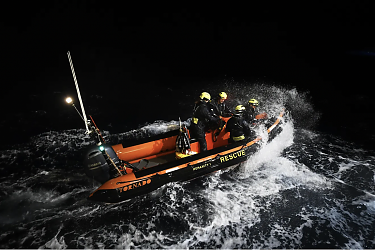
Rafts of the Medusa
Why every day on the Mediterranean is a new scandal for Europe. For both Foreign Policy and Die Zeit.
California’s Attempt at Land Reparations
How land seized from a Black family 100 years ago may be returned. The Bruce’s Beach story from a hometown angle, for The New Yorker
Day of the Oprichnik, 16 Years Later
The novelist Sorokin, the president Putin, his man Dugin, and the war in Ukraine. For n + 1.
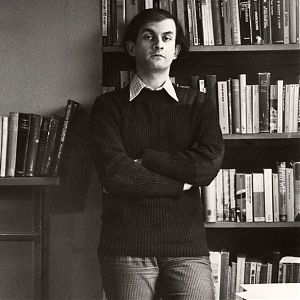
The Rushdie Narrative
Knife and the crumbling ground beneath free speech
There Must Be Some Way Out of Here
An essay on Bob Dylan, “All Along the Watchtower,” and Somali pirate captivity.
That Mystic Shit
The life of Lou Reed in two biographies
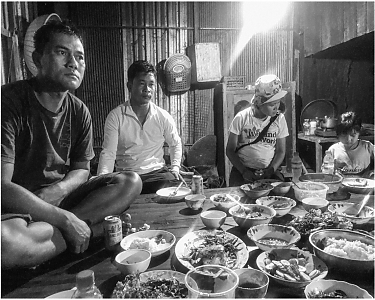
Cambodian Seafarers Talk About Pirates
Mike visits Cambodia for The New Yorker to talk about a harrowing shared experience in Somalia
The Muslim Burial
Cambodian hostages remember digging a grave for one of their own. A sequel chapter to The Desert and the Sea
The Real Pirates of the Caribbean
Adventure journalism in Southern California. A travel essay for The Paris Review.

Antifa Dust
An essay on anti-fascism in Europe and the U.S., for the Los Angeles Review of Books
Was Hitler a Man of the Left?
A book that helped Republicans in America lose their damn minds.
Ghosts of Dresden
The Allied firebombing of Dresden in 1945 destroyed the baroque center of what Pfc. Kurt Vonnegut called, in a letter home from Germany, “possibly the world’s most beautiful city.”
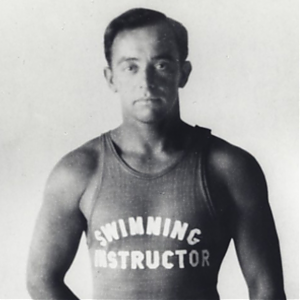
George Freeth, Biographed
The first academic treatment of America’s surf pioneer. Also, was Freeth gay?
It’s Called Soccer
Americans live on what amounts to an enormous island, defended on two shores by the sea, and we’ve evolved a few marsupial traditions that nobody else understands.
Tilting at Turbines (in the Severn River)
The morning was clear and cold, with frost on the church steeple and the cemetery grass. I had a quick English breakfast at a white-cloth table, in my wetsuit, and drove to Newnham, a village on the Severn River in Gloucestershire, parking near the White Hart Inn.
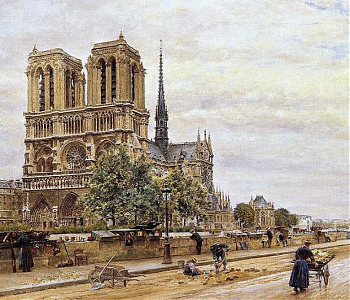
The Curse of El Rojo
I’d packed the car lightly — a bag of clothes, a bag of cassette tapes, a backpack of books, a few essential tools.









